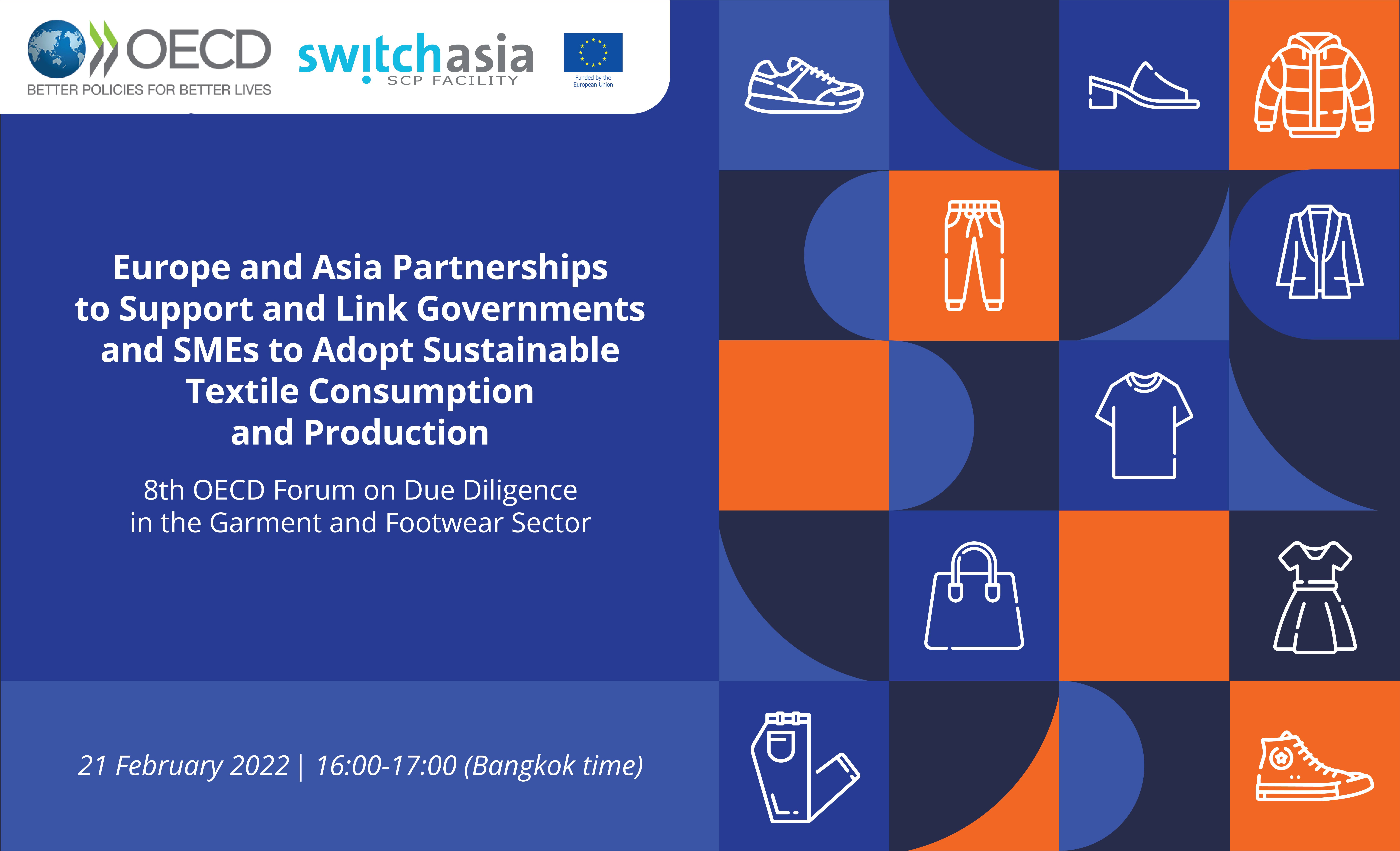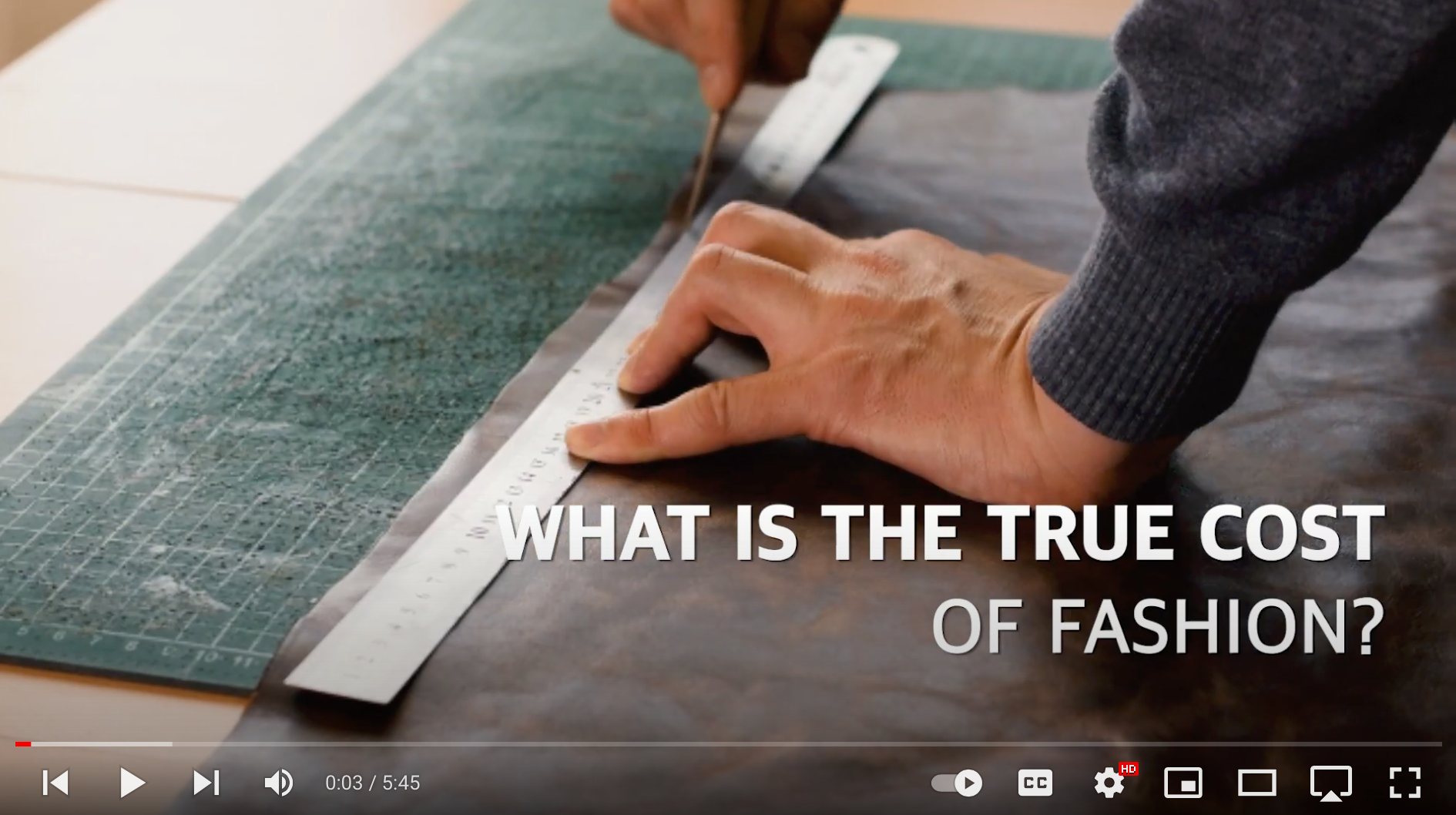
Date: 21 February 2022 I Time: 16:00 - 17:00 (Bangkok Time) I Register HERE I OECD Official Event website
Background
The textile and garments sector has contributed significantly towards the global economy as it is valued over USD 1.7 trillion and employs more than 300 million people. Despite its economic benefits, the sector is far from being sustainable. Countries are faced with the challenge on addressing the socio-economic, health, and environmental impacts across the garments sector value chain and the impacts of the COVID pandemic to the industry.
The importance of the textile and garment industry in Asia remains to be the one of the largest actors in terms of production, despite emerging challenges due to a number of factors on shifting demand and supply patterns in the world market and the impacts of COVID-19 pandemic which disrupted the textile supply-chain across the globe.
The theme of the 2022 Forum is Rethinking The Business Model For Responsible Supply Chains. Discussions will consider key developments in the sector, some affecting the very essence of supply chain structures and the capacity of different actors to adopt risk-based due diligence in their day to day activities. A series of panel sessions will explore which type of business models and broader policy initiatives deliver better practice on RBC, across topics from purchasing practices to supply chain dialogue structures, from living wages to climate risk mitigation and adaptation, and from mandatory due diligence to public procurement. Together, participants will focus on opportunities and next steps for scaling those initiatives that demonstrate impact.
The Forum brings together representatives of government, business, trade unions and civil society to review progress on the implementation of the OECD Due Diligence Guidance for Responsible Supply Chains in the Garment and Footwear Sector to address emerging risks and to share learnings on implementing due diligence across geographies in a neutral environment.
SWITCH-Asia SCP Facility Side Session
The European Commission is preparing an EU Strategy for Sustainable Textiles, which is meant to be a comprehensive framework aiming to boost competitiveness, sustainability, and resilience of the textile sector.
Impacts from fibre production and garments manufacturing in the textile industry largely generated in third countries and impacts related to consumption and disposal of garments would be important aspects to be addressed along this value chain. Launched as part of the EU’s priority to support Sustainable Consumption and Production (SCP) in its regional cooperation strategy for Asia, the EU SWITCH-Asia Programme is supporting Asian countries to implement SCP policies and practices in various sectors, including the textile and garment sector.
Objectives
The side session will present the partnerships and collaborations created in between Europe and Asia for the implementation of policy options and SCP practices by supporting SMEs to transition towards a low-carbon, resource-efficient and a more circular economy. Discussions will focus on how the streamline of sustainable consumption and production (SCP) policies and practices may minimise economic, environmental, and social risks, while ensuring producers’ profitability, an integral part of due diligence processes. To sustain and scale-up SCP actions in a post Covid world, discussion will also address how to strengthen partnerships in Asia to address key priorities and driving forces to reinforce governance and policies and to shift towards stakeholders’ responsible decisions, including in business-to-business relations, and actions towards textile sustainability.




